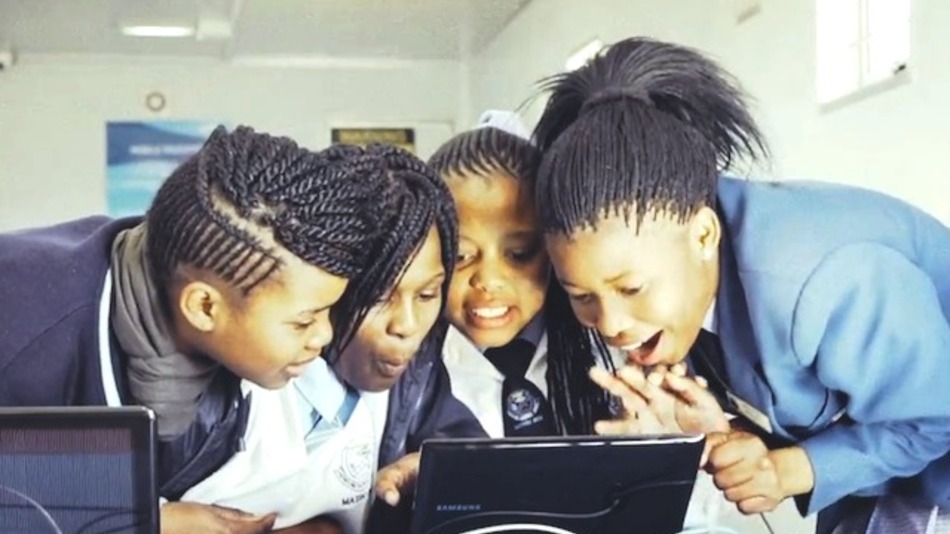Samsung Establishes Smart Schools with Solar Powered Internet in Rwanda


Samsung intends to deploy more ICT infrastructures, share with the locals the best methods of ICT integration to enhance learning and teaching, develop content and professionally train the educators. The SPIS installed at the GS Kamabare School comprises of a 40 foot long shipment container, that Samsung has modified and fitted with 24 Galaxy tablets, and an extra one for the teacher, a 50 inched electronic board, internet, multi-purpose Samsung printer and solar panels. All of the electronics within the container/classroom are optimized to be powered by solar energy.
 The electronic board makes it possible for a cross-group collaboration between and among learners and educators across different geographical. It enables video conferencing, can access the internet and can be connected to the tablets within the classroom, all simultaneously thus enhancing teaching and learning experience for the teachers and students. The SPIS and Smart Classroom design is for the remote rural areas that have little or no electricity supply and can be easily transported using trucks.
The electronic board makes it possible for a cross-group collaboration between and among learners and educators across different geographical. It enables video conferencing, can access the internet and can be connected to the tablets within the classroom, all simultaneously thus enhancing teaching and learning experience for the teachers and students. The SPIS and Smart Classroom design is for the remote rural areas that have little or no electricity supply and can be easily transported using trucks.
Samsung Vice President for East and Central Africa, Robert Ngeru said, “The fold-away solar panels provide enough energy to power the classroom’s equipment for up to nine hours a day. The solar-panels are made from rubber instead of glass to ensure they are hardy and durable enough to survive long journeys across the continent”. In rural areas with electricity supply, Samsung develops Smart Schools with the host school providing secure classroom facility while Samsung equips them with internet, servers, Galaxy tablets and e-board. Such a Smart School was launched at the GS Gashaki School in Musanze District.
The servers come pre-installed with some local educational content, through a partnership of Samsung and Intel. As the project continues, the servers will have more local contents installed which are relevant to the Rwandan curriculum. The Minister for Education, Dr. Vincent Biruta, applauded Samsung and encouraged more private firms to partner with the Rwandan Government in taking the education standards to the next level. He said, “Overcoming these challenges requires public and private institutions to work together in seeking relevant solutions. The quality of students that will graduate from our education system will also reflect on the kind of staff the private sector will be employing.”
His counterpart, the Minister of Youth and ICT, Jean Philbert Nsengimama added, “SMART Rwanda is the implementation vehicle for initiatives in the ICT Sector Strategic Plan 2013-2018 and aims at helping us achieve our ICT for Development Vision, one village at a time… One of the pillars that will assist in the success of SMART Rwanda is SMART Education. The Samsung Solar Powered Internet Schools, as well as the Smart Schools, therefore, fit perfectly in the government ICT plans for the future.”






